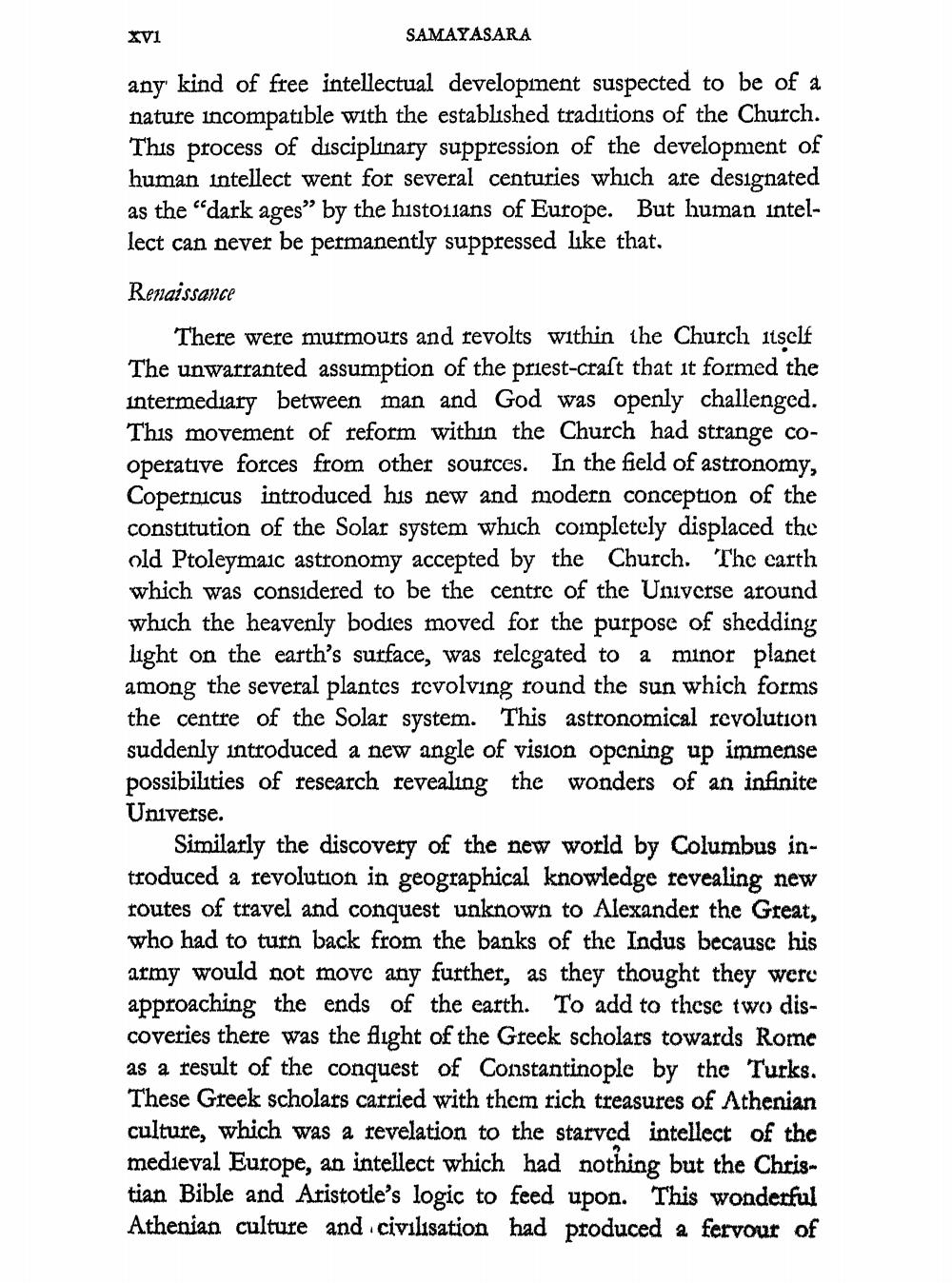________________
XV1
SAMAYASARA
any kind of free intellectual developinent suspected to be of a nature incompatible with the established traditions of the Church. This process of disciplinary suppression of the development of human intellect went for several centuries which are designated as the “dark ages” by the histolians of Europe. But human intellect can never be permanently suppressed like that.
Renaissance
There were murmours and revolts within the Church itself The unwarranted assumption of the priest-craft that it formed the intermediary between man and God was openly challenged. This movement of reform within the Church had strange cooperative forces from other sources. In the field of astronomy, Copernicus introduced his new and modern conception of the constitution of the Solar system which completely displaced the old Ptoleymaic astronomy accepted by the Church. The carth which was considered to be the centre of the Universe around which the heavenly bodies moved for the purpose of shedding light on the earth's surface, was relegated to a minor planet among the several plantes revolving round the sun which forms the centre of the Solar system. This astronomical revolution suddenly introduced a new angle of vision opening up immense possibilities of research revealing the wonders of an infinite Universe.
Similarly the discovery of the new world by Columbus introduced a revolution in geographical knowledge revealing new routes of travel and conquest unknown to Alexander the Great, who had to turn back from the banks of the Indus because his army would not move any further, as they thought they were approaching the ends of the earth. To add to these two discoveries there was the fight of the Greek scholars towards Rome as a result of the conquest of Constantinople by the Turks. These Greek scholars carried with them rich treasures of Athenian culture, which was a revelation to the starved intellect of the medieval Europe, an intellect which had nothing but the Christian Bible and Aristotle's logic to feed upon. This wonderful Athenian culture and civilisation had produced a fervour of




